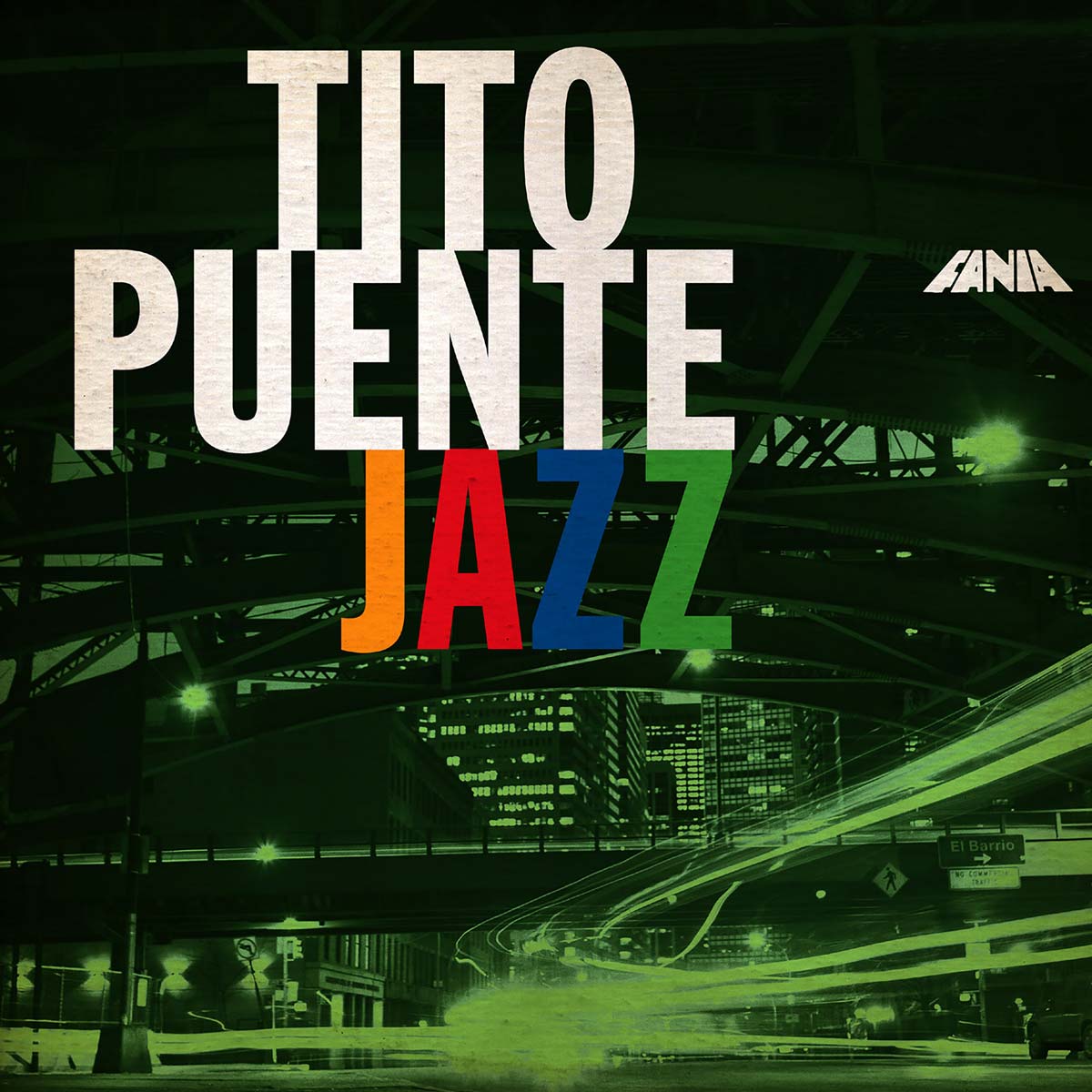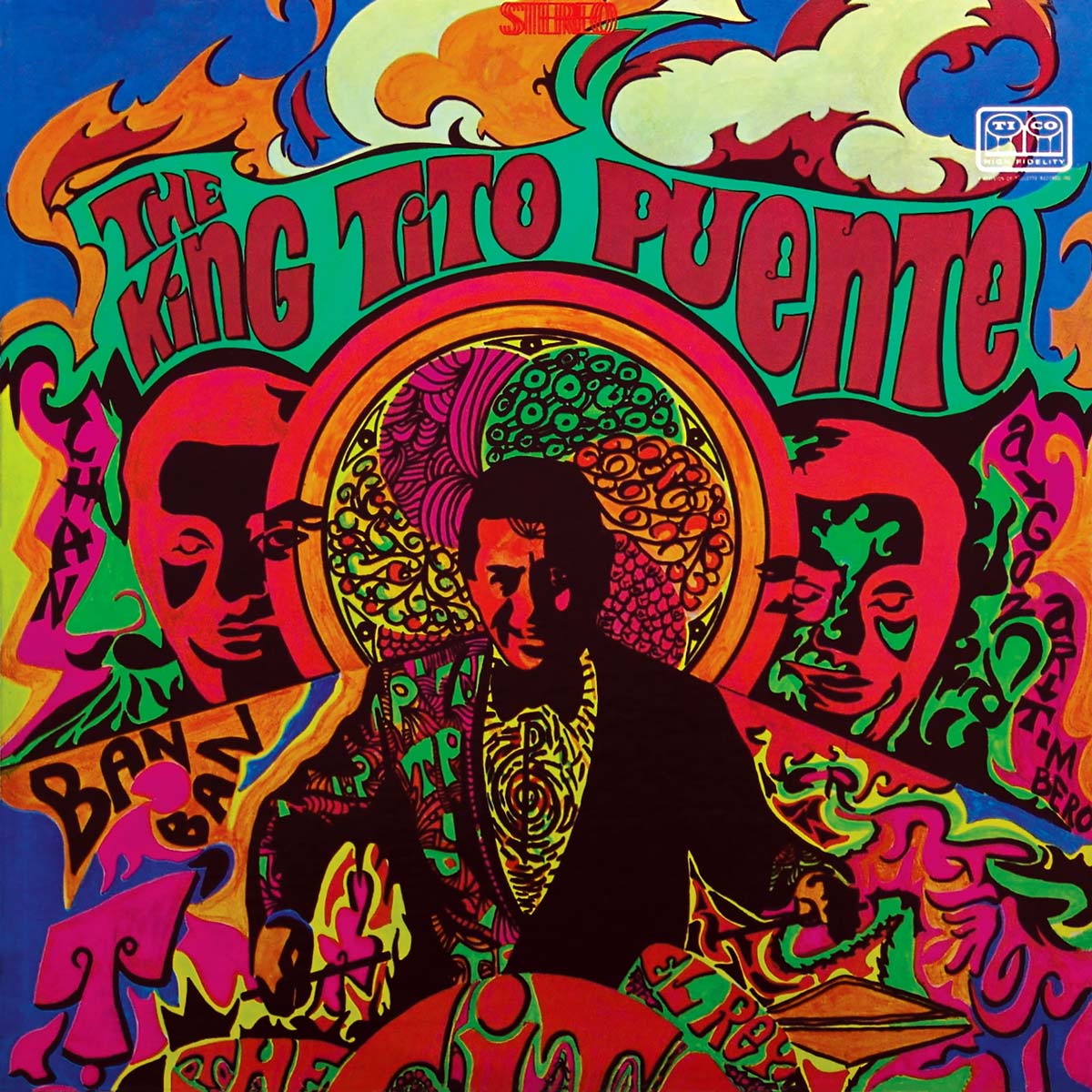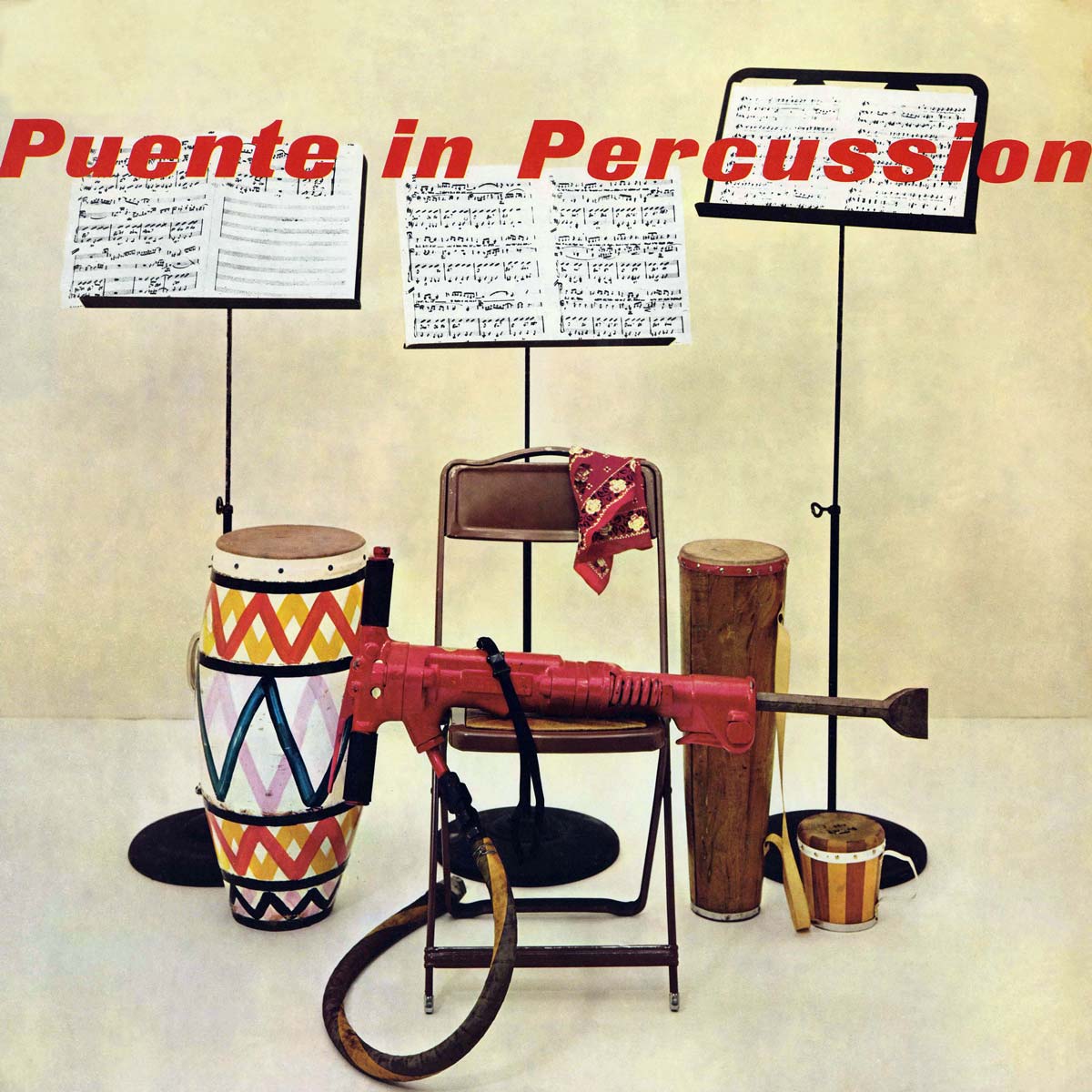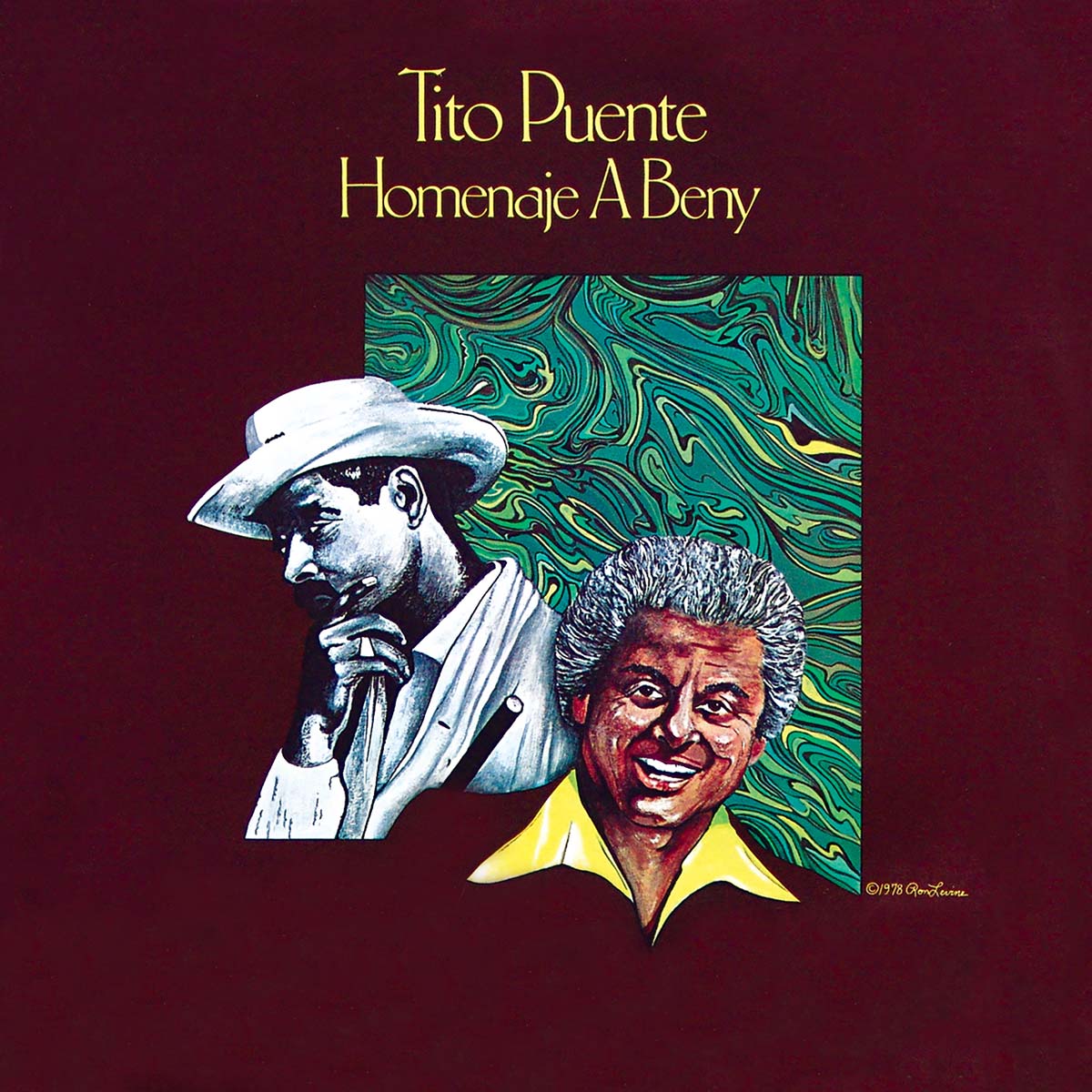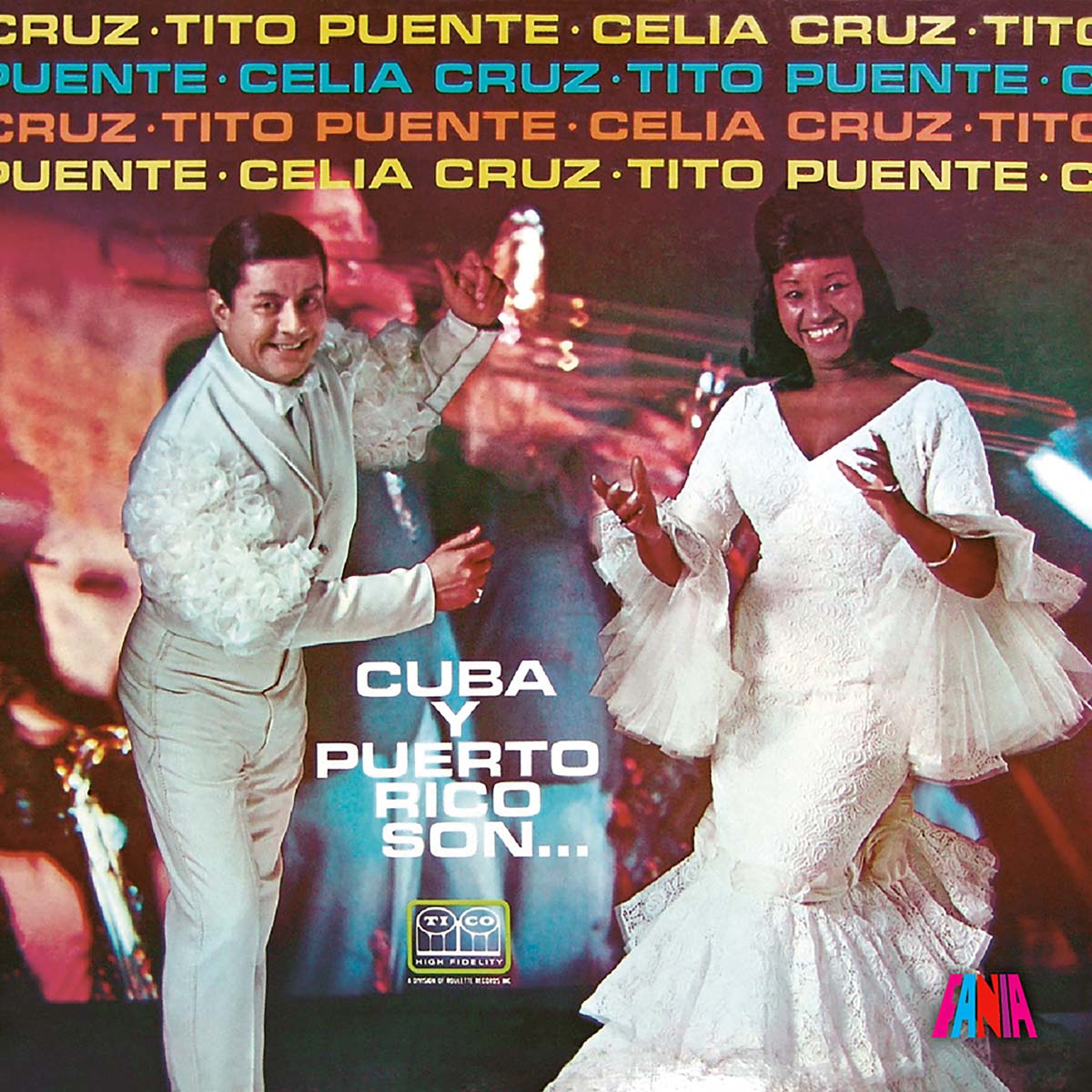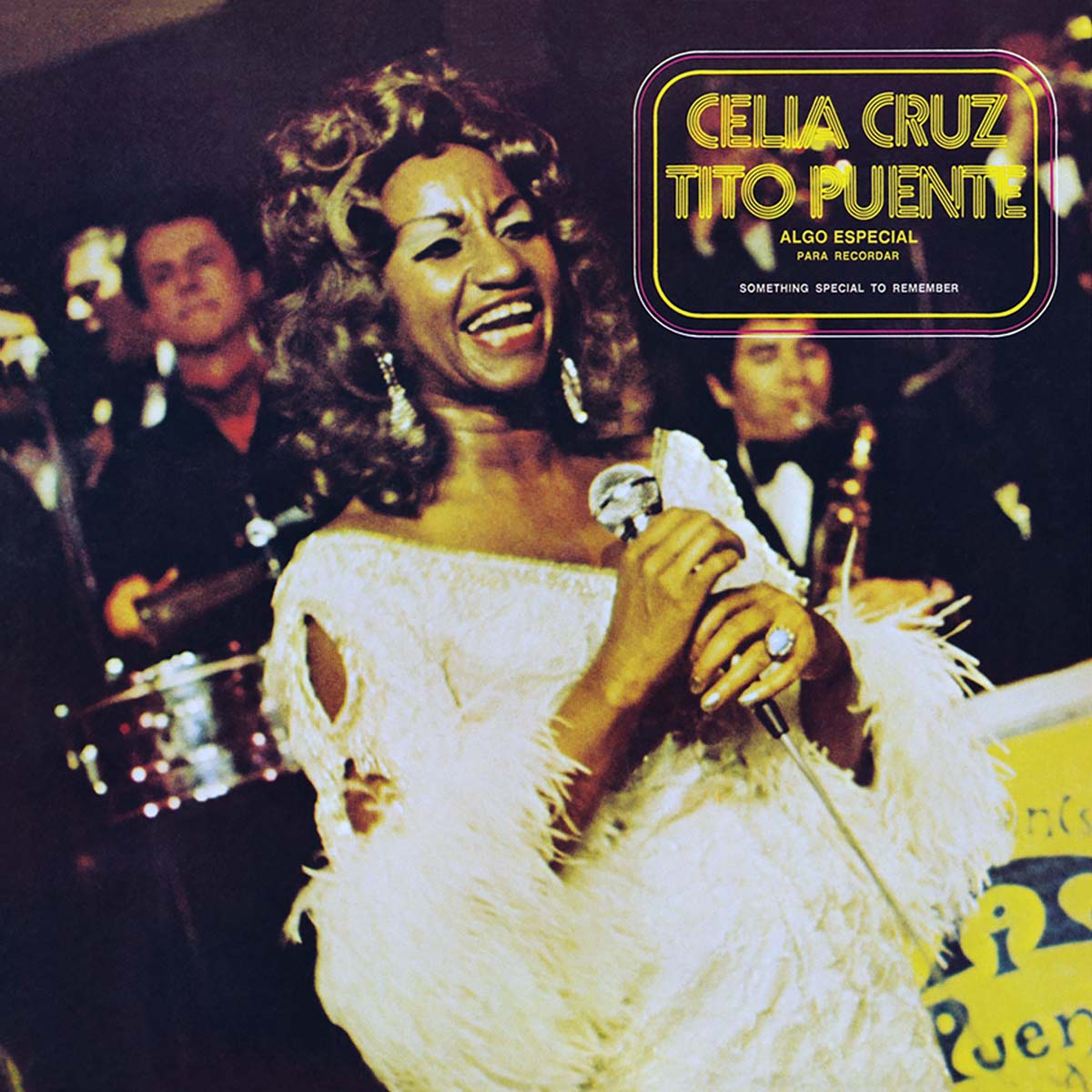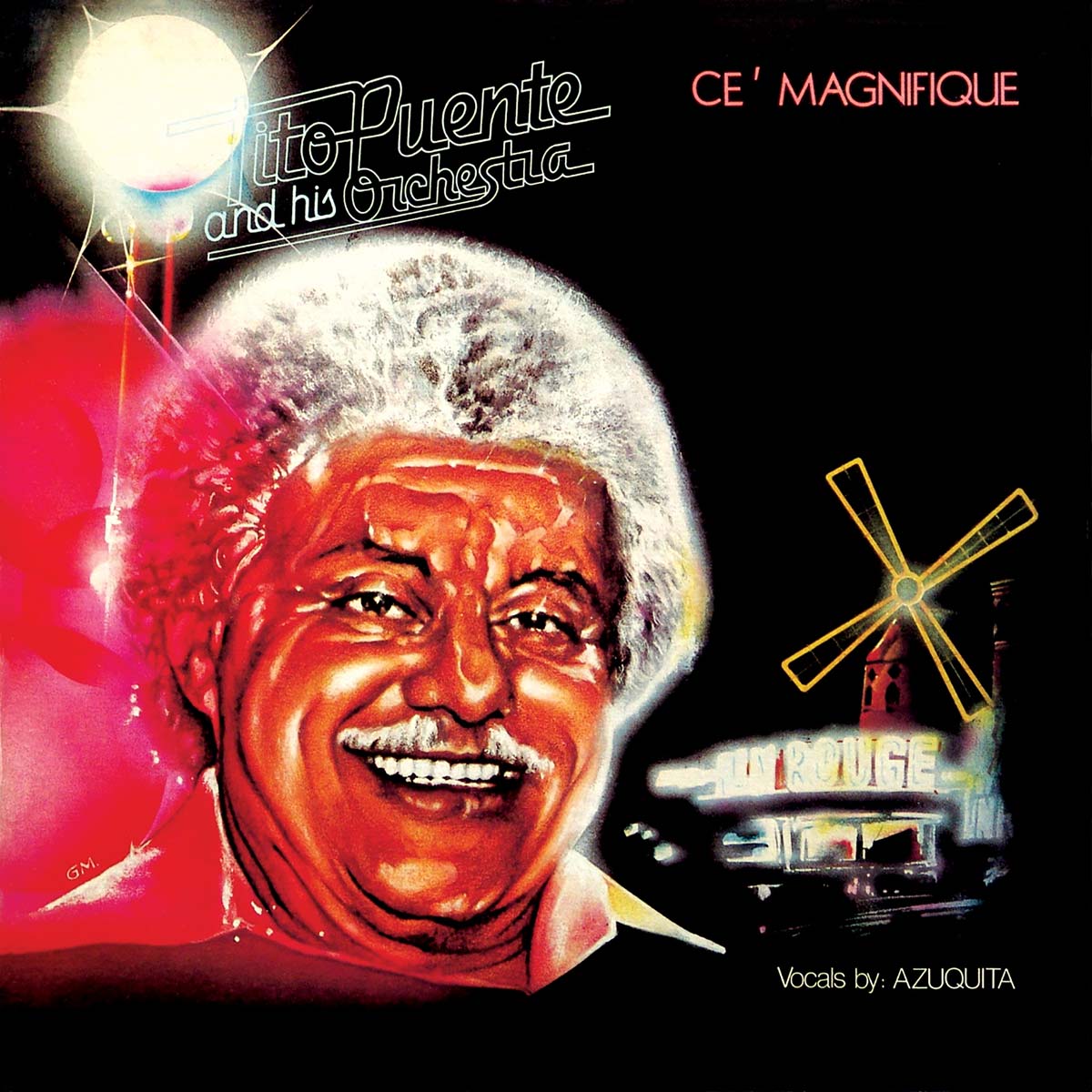
From fiery mambo jams and hypnotic percussion descargas to silky jazz sessions and torrid bolero interludes, Tito Puente did it all. The Nuyorican timbalero’s thirst for experimentation was limitless. And even though he left behind a legacy of over 100 recordings, Puente never made a bad album.
The collection you hold in your hands is not as widely celebrated as classic Puente titles such as Dancemania or Tambó. It is nevertheless a delightful lesson in tropical combustion, a testament to the timbalero’s ability to tailor his playing and arrangements to the specific style of a particular vocalist. Puente loved to show off his percussive chops, but he also knew how to step aside and let the vocalists shine. From Celia Cruz and La Lupe to Tony Vega and Santitos Colón, countless singers benefited from his inspired bandleading. Panamanian sonero Camilo Azuquita Argumedez was no exception.
The details of how this recording originated are as fascinating as the music itself. I was living in Paris and somebody from the Tico company called me in 1980 telling me that I still owed them a record, recalls Azuquita. It’s late on a summer night in 2006, and the sonero has just returned to Panama City from a tour abroad. Previous attempts to reach him on the phone that same evening had failed: according to his sister, Azuquita had arrived from the airport and left in search of a good piece of fish for dinner. Now the evening meal is over and Azuquita sits down to talk on the phone and reminisce about the good old days. I explained to this gentleman that my contract with Tico had expired, having lasted from 1974 to 1979, he continues. But I also told him that the only way I would make another album for the label was if Tito Puente was involved. According to Azuquita, the label representative scoffed at the idea. Puente was a busy man, occupied with other projects. Call him up, Azuquita insisted. You made the effort to call me here in Paris. You might as well dial Tito in New York. 15 minutes later, the phone rang again. Puente had loved the idea of working with Azuquita. What the Tico people didn’t know was that Puente had already visited me in France and was aware of the popularity that I enjoyed there, adds the singer. He had seen the huge posters promoting my shows plastered all over Paris. Azuquita flew to New York for a recording session that lasted only three or four days. He composed five numbers for the occasion, which were complemented with three other tracks – including Puente’s own smoldering “Guaguancó Arsenio.” No wonder there’s an intoxicating feeling of pure adrenaline that runs through this record. It reflects the boundless energy of two major tropical music artists working under pressure and at the peak of their powers.
Perhaps the album’s most endearing number is the vibrant guaracha “No Me Touche Pas.” The tune is based on a true story, which took place when Puente met with Azuquita while touring Europe. We were waiting for the metro in a Paris subway station, when a policeman dressed in plainclothes intercepted us, recalls the singer. He asked for our papers, and Tito had actually left his passport at the hotel. The cop started shoving us, and it was then that I exclaimed what would become the song’s celebrated chorus: Don’t touch me. Ne me touchez pas. Even though it boasted a healthy number of potential hit singles, the album failed to connect with a wide salsa audience when it was released in 1981. Both Azuquita and Puente wondered why such an inspired project was not promoted properly by the company that bankrolled it. Now, more than 25 years after the fact, “Ce’ Magnifique” gets a new lease of life in the hands of salsa connoisseurs and Puente completists alike. It was long overdue.
Credits: Vocals by Camilo “Azuquita” Argumedez Mark Friedman – Alto Saxophone Bobby Porcelli – Alto Saxophone Mitch Frohman – Tenor Saxophone Mario Rivera – Baritone Saxophone Jimmy Frisaura – Trombone Richard Caruso – Trombone Larry Farrell – Trombone Tony Barrerro – Trumpet Lionel Sanchez – Trumpet Paulo di Paula – Trumpet Hector Zarzuela – Trumpet Sonny Bravo – Piano Andy Gonzalez – Bass John Rodriguez Jr. – Bongoes Jose Madera – Conga “Guaguanco Arsenio” , “Negro De Sociedad”, “No Me Touche Pas”, “Si Alguna Vez”, “Virgen De Regla” Carlos Valdes – Bata Drum Solo “Azucar Pa’ Un Amargao”, “Salsarengue”, “Africa Linda” Tito Puente – Timbales (Timbalito Solo and Piano Solo on “Guaguanco Arsenio”) Chorus – Frankie Figueroa, Nestor Sanchez, Ray de la Paz, Tito Puente Orchestra Conducted by – Jose Madera Recording and Musical Director – Jose Madera Producer – Tito Puente Executive Producer: Jerry Masu


